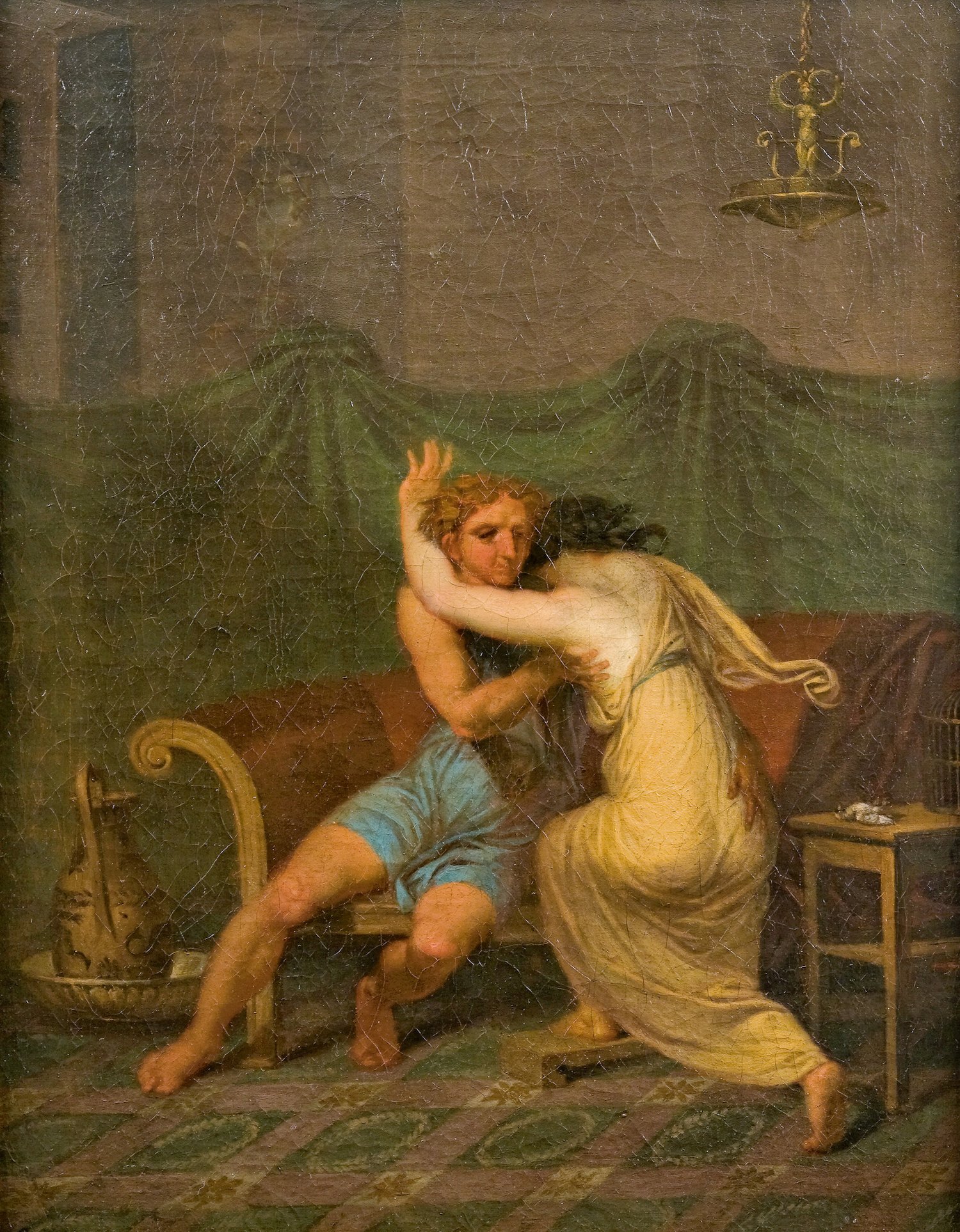
ōdī et amō
This work takes its name from the poem which is the subject of the seventh and final movement: "ōdī et amō," the eighty-fifth of the Carmina by Classical Latin poet Gaius Valerius Catullus. The title of this poem translates to "I hate and I love," two emotions which inform the titles and characters of the fourth and fifth movements of the cycle. These three movements form the center of a cycle of character pieces, which each include topics such as running, dancing, trying, and singing.
Structurally, the piece is inspired by a data structure commonly used in computer science, called a linked list, which functions to store lists of objects in a computer's memory. A linked list is composed of a sequence of nodes that each contain two elements: the item at this position in the list, and a pointer to the next node in the list. The movements of this piece are like these nodes; each has two parts that correspond to the components of a node of a linked list. The first, comprising the majority of the duration of the movement, is the "item" at this point in the list, or a passage of music based on a single idea. The second comes at the end of each piece and represents the "pointer" to the next node in the list; this is a brief, often surprising reference to the content of the following movement.
The movements of this piece (or the nodes in this linked list) are roughly sorted in ascending order in terms of lyricality. Beginning at an instrumental extreme, each successive movement is more lyrical than the last, reaching the limit of how lyrical the viola can be, and finally going beyond it in the last movement.
A note: the last movement has versions for four voice types. If none of them work for you, please contact me and I will transpose it for you!
